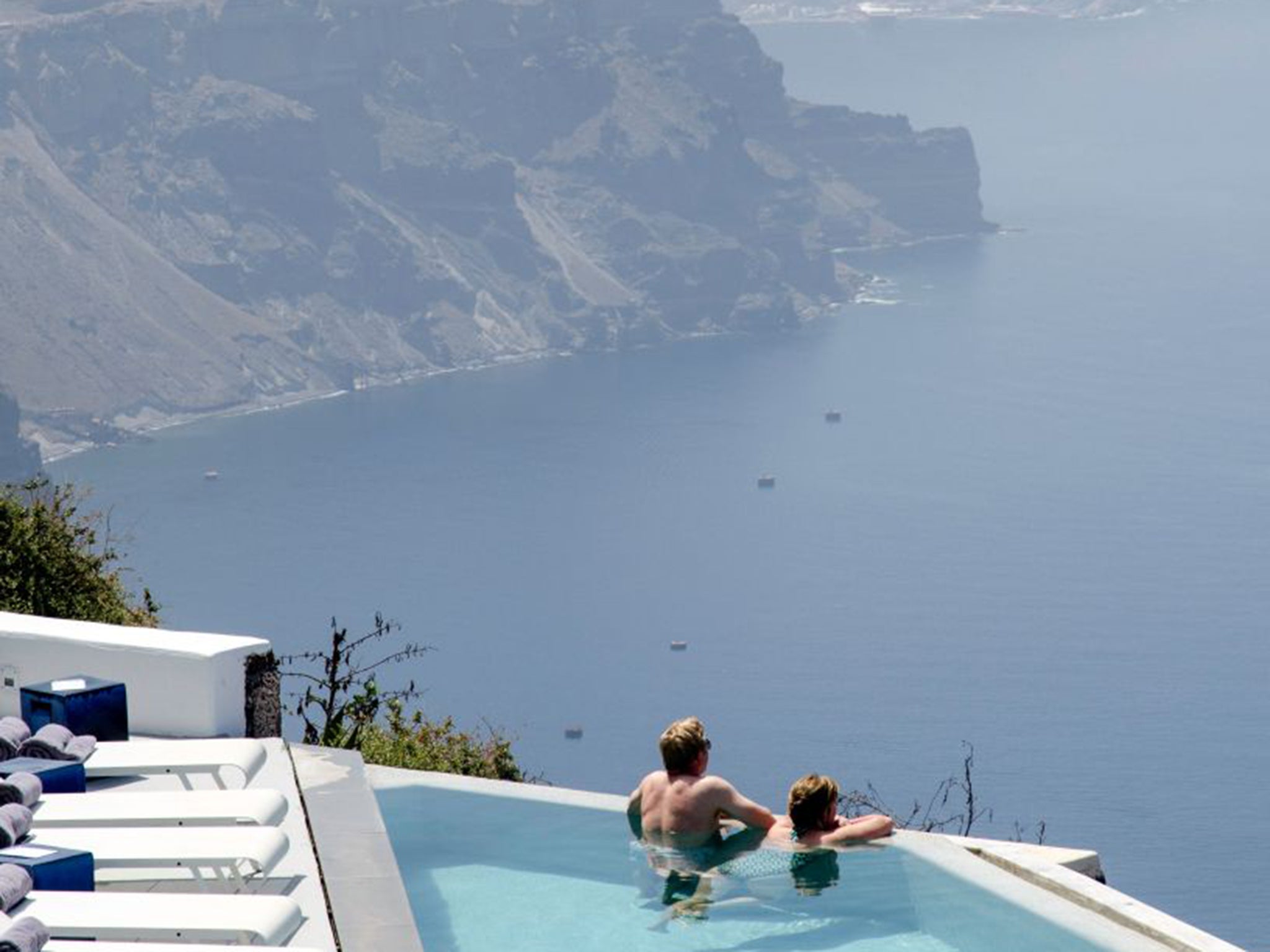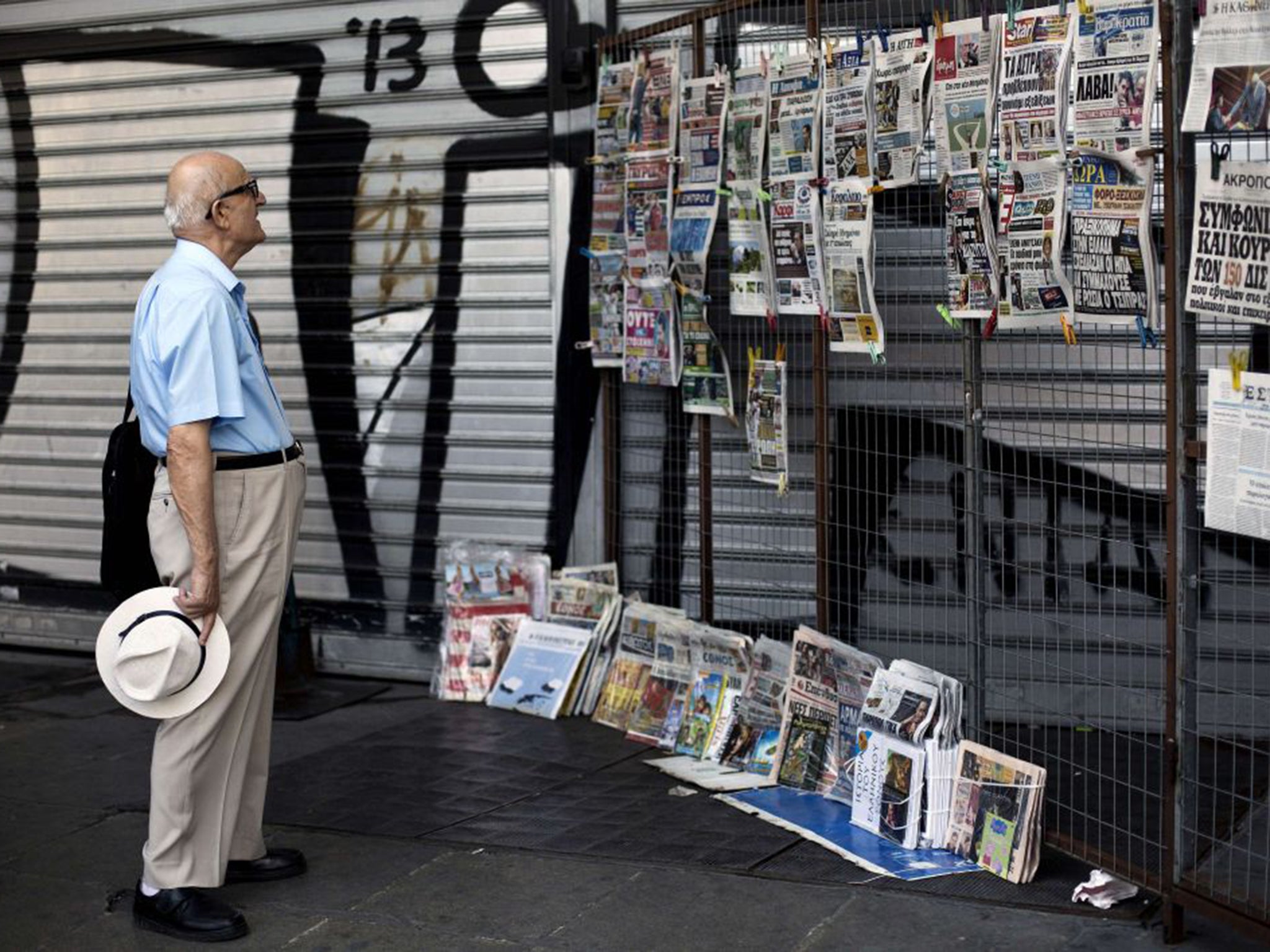Greek debt crisis: In Khalkidhiki, rich foreign investors queue up to buy the elegant villas
'The Russians know what they want ... a sea view is the thing'

Your support helps us to tell the story
From reproductive rights to climate change to Big Tech, The Independent is on the ground when the story is developing. Whether it's investigating the financials of Elon Musk's pro-Trump PAC or producing our latest documentary, 'The A Word', which shines a light on the American women fighting for reproductive rights, we know how important it is to parse out the facts from the messaging.
At such a critical moment in US history, we need reporters on the ground. Your donation allows us to keep sending journalists to speak to both sides of the story.
The Independent is trusted by Americans across the entire political spectrum. And unlike many other quality news outlets, we choose not to lock Americans out of our reporting and analysis with paywalls. We believe quality journalism should be available to everyone, paid for by those who can afford it.
Your support makes all the difference.From the rugged green coves of Khalkidhiki, to the carefully manicured lawns of Athens’s south suburbs, a quiet, relentless change is under way. The smart houses and elegant villas of Greece’s upper classes are changing hands, not from one generation to the next as their owners intended, but into the hands of foreigner investors.
As wealthy Greeks contemplate a tightening of their budgets, or even fleeing Greece’s economic mire altogether, many overseas customers are forming a queue to buy their properties as holiday homes in some of the most beautiful parts of the Mediterranean. Rich Russians are leading the way, according to local estate agents.
“Lots of foreigner clients are looking because now is absolutely the best time to buy,” Svetlana Kuklina from the Greece.ru estate agency told The Independent on Sunday: “Prices cannot go much lower. We’re talking about very, very big savings. Some villas that were valued at €2m are now going for €1m [£720,000].”
But she said that many of the “old Greek families” selling their properties were mostly doing so under duress. “Very often these homes have been in their families for generations and they’re sad they have to sell them. They had been hoping to pass them on to their children,” she said. “Sometimes it’s because they’re not using them, but most of them can’t afford the property taxes, which are very big.”
A survey of Greek and Russian estate agents conducted by Bild magazine showed that property prices have dropped by 50 per cent since the crash in 2009.
“If a villa on the Greek island of Syros cost €1.6m a few years ago, it is now selling for just €800,000,” Isabelle Razi, the founder of the Greek estate agent IRM Aegean Estate, told local media.
She added that the demand for expensive properties has nearly doubled since last year, with the suburbs of Athens, the region of Khalkidhiki in Macedonia and the island of Crete among the most popular areas.
Chinese investors as well as Russians lead the demand, she said, but interest is growing among investors from Bulgaria and Serbia.
“The Russians and other foreigners moving in know what they want,” added Ms Kuklina. “A sea view is the most important thing. In this part of Greece, Khalkidhiki, it’s very green and that appeals to them, as well.”
She said the average Russian buyer was spending €250,000 to €500,000 on a “nice home” close to the sea.
Rich buyers from emerging economies seeking holiday homes and property investments have targeted other Mediterranean countries suffering economic hardship, notably Italy, where once again it is Russians in the vanguard.

That trend has its roots in Russia’s own economic turmoil. With the rouble crashing as Russia suffers falling energy prices, and biting sanctions over its Ukraine policy, many wealthy Russians are seeking to invest their money in bricks and mortar overseas.
And Italy’s upper classes appear to be actively seeking their custom. Across the country, 70 privately owned castles and palaces, many of which have been in old Italian families for generations, are on the market, amid stories of Italian nobility selling off paintings to pay the bills.
According to the Florence-based Lionard Luxury Real Estate, Italy’s nobles are setting their sights on super-rich foreign buyers, with 80 per cent of interest coming from Russian clients.
One of the latest landmarks to fall into foreign hands is the Castello di Tavolese, a five-storey castle dating back to 1200 situated on 62 hectares of land, which belonged to the family of 13th-century aristocrat Farinata degli Uberti. It was sold for between €10m and €20m.
Join our commenting forum
Join thought-provoking conversations, follow other Independent readers and see their replies
Comments